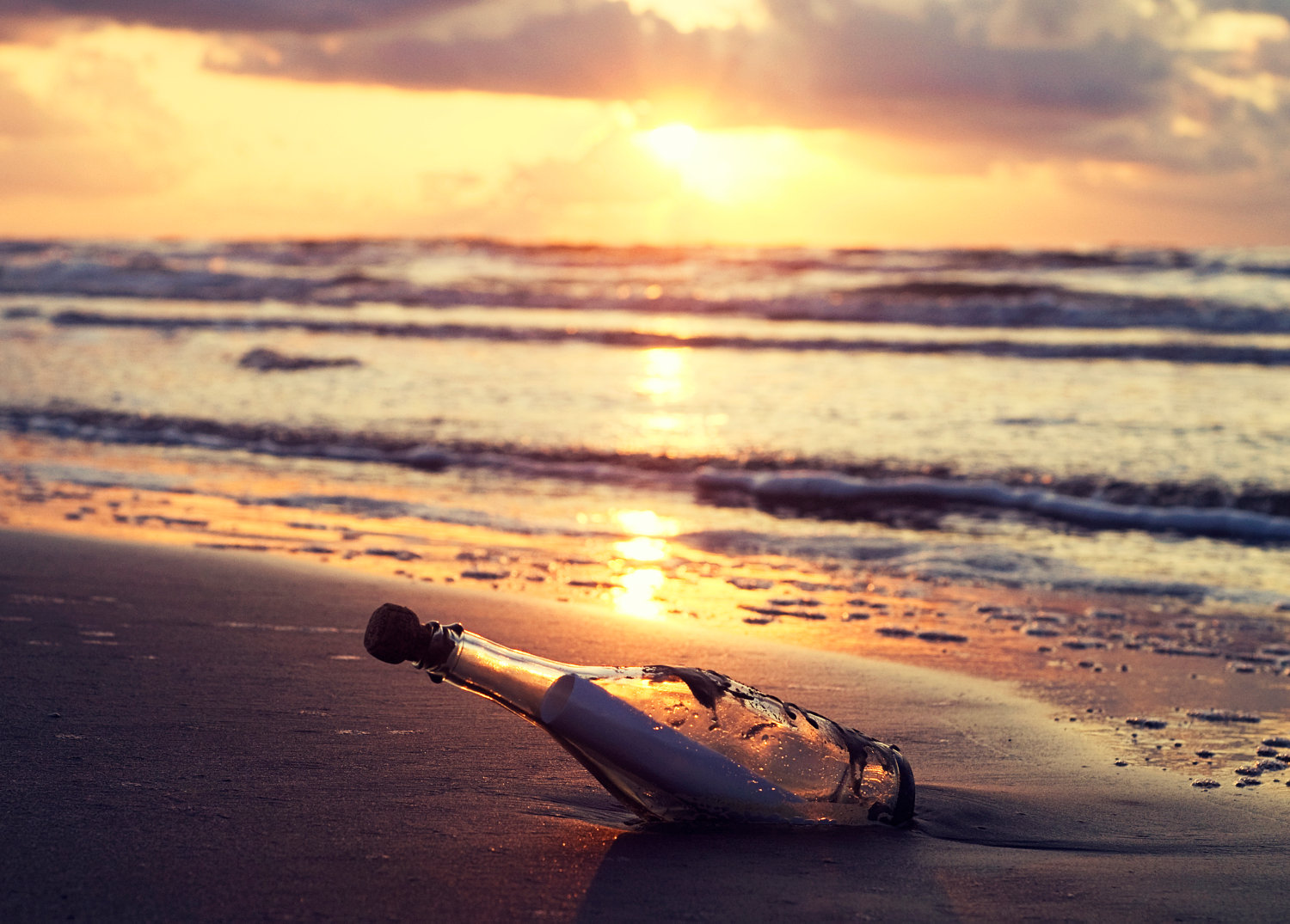So what now?
Lay down our swords? Fight with armor instead?
Who will be left to fight when we all end up dead?
– Journal Entry, 1/27/11
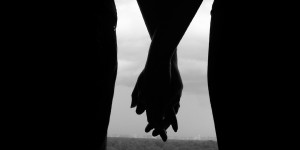
Last night, I received the news from one of my peers that one of us, a fellow African and LGBT activist, David Kato, had been brutally murdered at his home in Uganda.
Something about the way I received the news cut more deeply than all the other hate crimes that the media covered last year: several email forwards from other LGBT African activists I knew, Facebook status updates from friends who knew him personally, text messages of condolences, missed skype phone calls…
A year ago, I would’ve been part of a community of activists that were “outraged” at such a terrible crime. I may have even written a post condemning the destructive influence of the tabloid paper which outed several gay Ugandans (by publishing their photos and addresses, with the words “Hang Them!”), and called for all of us to acknowledge the power of media, and to contribute our own voices so that we can influence change positively.
However, a year of aggressive networking, coalition building, and supportive friendships with other LGBT Africans, both in the US and outside of it, has placed me closer to the frontlines of the struggle for acceptance; the fact that there were just  two degrees of separation between my own life and David’s murder is a harsh reality I’m still trying to absorb. I no longer have the privilege of being a passionate spectator. I’m part of a global community of activists who are deeply saddened, in mourning, and filled with so much fear…
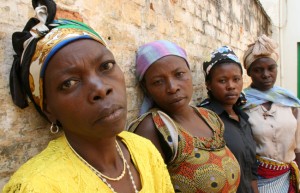 When I read the news, I immediately thought of one of my friends, who’s presently seeking asylum in the United States after escaping just what may have been just as brutal an outcome for her in Kenya last year. That was so close, I thought. I may have never known her. I thought about the power Nigeria had just given back to traditional rulers in the spirit of preserving culture and respecting older  traditions, an act that empowered one of the rulers in Abia (Ibo land, where my mother is from) to put forth a law not just ostracizing persons who are “confirmed homosexuals”, but stoning them to death as well. My grandfather still lives there and he doesn’t know about me.
When I read the news, I immediately thought of one of my friends, who’s presently seeking asylum in the United States after escaping just what may have been just as brutal an outcome for her in Kenya last year. That was so close, I thought. I may have never known her. I thought about the power Nigeria had just given back to traditional rulers in the spirit of preserving culture and respecting older  traditions, an act that empowered one of the rulers in Abia (Ibo land, where my mother is from) to put forth a law not just ostracizing persons who are “confirmed homosexuals”, but stoning them to death as well. My grandfather still lives there and he doesn’t know about me.
I thought of the last conversation I had with my mother. She’d told me, “Don’t come home,” and I’d gotten so angry. How could she tell me not to return home to my own country? At the time, I admonished her for letting her fear of what others would say cloud her judgment. I was her daughter after all. If she loved me unconditionally as she said, she wouldn’t care what anyone else said. She’d support me, no matter what.
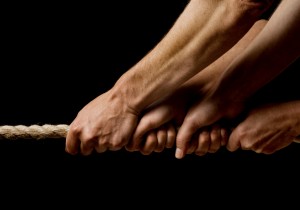
“Why do you have to play Moses?” she’d said to me when I told her about joining the board of the Queer African Youth Network and shared my plans for organizing in Nigeria. “Why do you always have to be the one championing  everything? I didn’t ask for this.” What I didn’t understand until last night, when I received the news of David’s murder, was that my mother wasn’t just afraid of what people would say about her; she was afraid of what people would do, to me.
After hearing about David’s brutal murder — his head bashed in with a hammer in his own home — I keep hearing her voice in my head. Her words are on loop, piercing my morale in different places. I’m still trying to come to terms with all of this.
I visit home once a year, and each time I do, I return with funny stories about feeling oppressed: being forced to wear dresses and loud earrings, suffering through silly kitchen table conversations about wives who don’t know how to prepare egwusi soup for their husbands, and of course being asked over and over again when I’m going to get married. The anecdotes are relatable enough; a girl from a small town in Maine or Kansas could report similar injustices over Thanksgiving dinner. I realize that I’ve only ever recounted these stories with humor because it’s too painful to talk about the fear I have of what might happen if I don’t smile through it all. As a result, what my friends routinely fail to grasp is the severity of the repercussions should this ‘small town girl’ refuse to conform. There are terrible consequences for being who you are and they’re way worse than being uninvited to next year’s Thanksgiving dinner.
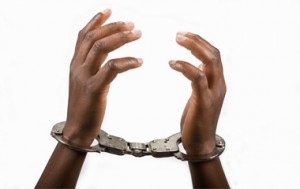 I don’t get to just “do me” at home in a fit of individualist rebellion. I’d be risking way more than just societal acceptance, and even way more than just my life; by writing and speaking as much as I do, I’m already risking the safety and livelihood of my parents and my sister (who reside in Nigeria and depend on their social network for a variety of resources), and anyone else who stands by me.
I don’t get to just “do me” at home in a fit of individualist rebellion. I’d be risking way more than just societal acceptance, and even way more than just my life; by writing and speaking as much as I do, I’m already risking the safety and livelihood of my parents and my sister (who reside in Nigeria and depend on their social network for a variety of resources), and anyone else who stands by me.
So, what now? Do I cower at the thought of being murdered during a visit home? Shut down my blog and abandon all hope for fear? Do I give up on reuniting with my family for longer than two weeks at a time every couple of years, dreading that in the interim, someone will discover who I am and bring shame (or worse) to my family? Can I hide behind glass and watch from a distance as people all around me are dying, when my voice and visibility can at least offer support and affirmation that they are beautiful as they are and do not deserve the cruelties under which they are suffering…
I turn to a quote from a press release from the ILGA for inspiration:
[David said] ‘I can’t run away and leave the people I am protecting. People might die, but me, I will be the last one to run out of here’. “David Kato did not run, and he died. We cannot leave his work undone†Gloria Careaga stressed.
No doubt David’s brave words will resonate with activists and community organizers all over the world. His words along with Gloria’s call to action are enough to get me out of my rut, even though I am still sad, and still afraid. The truth is that even though, like so many other activists, I’m still trying to figure out my place in all of this, one thing is absolutely certain: I must do something. We must do something. We must NEVER abandon hope for fear.
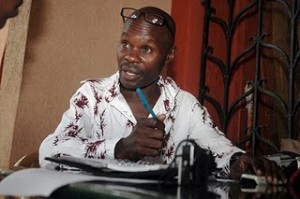 Dear David, in honor of the sacrifice you’ve made for all of us, I will do my part to support the movement you helped propel forward by daring to be bold enough for those who do not have the privilege to be so bold. I will continue to push through my fear to be visible to those who need to see me, to speak to those who need to hear me, to support those who I can directly. In honor of your work and all the others who have died before (and will continue to die) after you, I will NEVER stop speaking. I will never stop fighting. Your death will NOT be in vain.
Dear David, in honor of the sacrifice you’ve made for all of us, I will do my part to support the movement you helped propel forward by daring to be bold enough for those who do not have the privilege to be so bold. I will continue to push through my fear to be visible to those who need to see me, to speak to those who need to hear me, to support those who I can directly. In honor of your work and all the others who have died before (and will continue to die) after you, I will NEVER stop speaking. I will never stop fighting. Your death will NOT be in vain.
To My African Diaspora, whether or not you are part of the LGBTQ community or not, it is your responsibility to stand in solidarity with the human rights organizations that are fighting against the injustices being committed against LGBTQ Africans every day. Do NOT join the ranks of the “Aww”-givers, who sit cross-legged on their sofas as they watch the daily news. Africans are Africans, period. Those are YOUR people that are dying. We are ONE community. We MUST stand together in the face of all this injustice and we must speak out and support each other, from wherever we are, in whatever capacity we can. WE are the only people that can rescue Africa from this mess. The future of our Africa is in our hands.
And finally, to activists, concerned citizens, allies, friends, etc. Please consider making a donation to The Queer African Youth Network. Here is a Donation Link. Signing petitions against ‘corrective rape’ online won’t change much. But your dollars supporting an organization that is coalition building in countries around Africa and providing resources to LGBTQ Africans worldwide just might…



